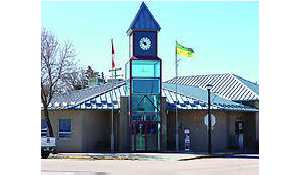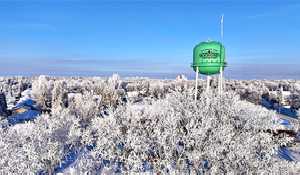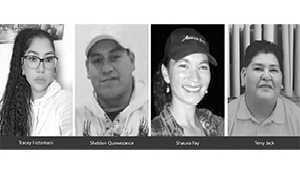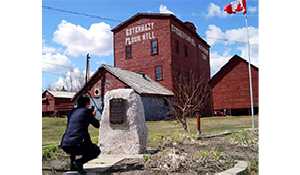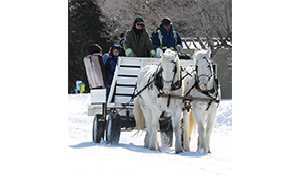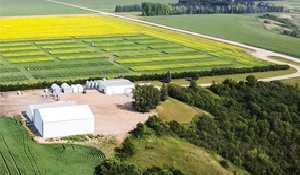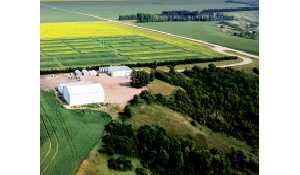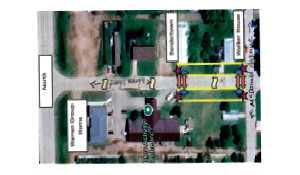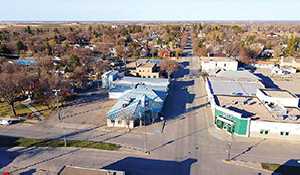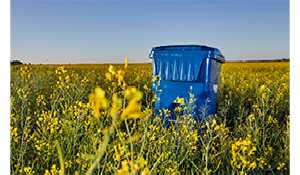OH&S Ruling: Children can keep working on family farms
August 19, 2014, 2:04 am
Julia Dima


Saskatchewan’s labour minister says children can continue working on family farms, after all
A family farm near Endeavor, Saskatchewan, came under fire two weeks ago after complaints were made to Occupational Health and Safety (OH&S) that the farm was employing underage workers.
The underage workers at the centre of the investigation were the two daughters of the farm owner, Janeen Covlin, who operates her free-range butchery, Cool Springs Ranch.
The ranch also employed some teenagers under the age of 16 occasionally.
While most family farms are traditionally exempt from the Saskatchewan Labour Act, which considers an employee “a person whom an employer permits, directly or indirectly, to perform work or services normally performed by an employee,” The Covlin farm came under fire because the children were processing poultry and other meat products—something that underage children are generally not legally allowed to work. However, exemptions exist in cases like that as well.
Last week, the Ministry of Labour Relations and Workplace Safety ruled that the underage family members could keep working on the farm, in all aspects of the operation including the poultry processing. However, Covlin would no longer be able to hire non-family members under 16 years of age.
“We looked at it, and decided for this case, we were going to treat this as an extension of the family farm exemptions, and told the family it was acceptable to have their kids working there, but they could not employ people from another farm. The status quo now will be that their own family members are continuing to work there— we should note that this is a farming operation that has an impeccable safety record,” says Labour Minister Don Morgan.
Moosomin MLA Don Toth says that when he first heard about the OH&S investigation, he could not believe it. “Given that I’m a person who grew up on a small family farm, and there are a lot of young Saskatchewan men and women growing up on the family farm—part of maintaining it is that everybody pitched in, and you helped wherever you could,” Toth says. “Working with meat is nothing new from what happened in the past. You pitched in on butchering, and at the end of the day when everything was done, you enjoyed that fried chicken.”
Toth says that it is important that children on family farms are able to do work.
“One thing about children having the opportunity to work, whether it is on the farm or whether it is delivering papers or cutting the neighbor’s grass, is that you’re instilling into that young person the idea that it doesn’t hurt to get your hands dirty—it doesn’t hurt to learn how to get up in the morning and do an honest day’s work,” Toth says. “Then at the end of the day when you’re getting ready to apply for jobs, being able to put on that resume that you grew up on a family farm, or were in 4-H or Cadets, those features are highly looked upon by employers. That is where we all learned what it was to get up and go to work, and also to not only support the family farm, but to respect each other.”
Toth says he feels the Ministry struck the right balance between workplace safety and maintaining the long-standing tradition of family farms in the province.
“OH&S has a responsibility to ensure a safe workplace. When you hear of someone who died in an accident, or was seriously injured, that bothers us as well. So I believe the response by the minister in recognizing the role the family farm plays in growing our province was positive, and I believe a lot of people appreciated that. The goal is to ensure a safe workplace while also respecting the rights of members on a family farm to be able to support the family farm,” Toth says.
Morgan says that is the balance the Ministry was striving for in its ruling.
“It was a common sense thing to do. In a lot of family farms, kids operate equipment, they work with animals—the fact that there was a processing facility where the poultry was processed and sold, we felt was not of any great significance, and that we should treat it as simply an extension of the family farm,” Morgan says.
The family farm labour act exemptions have been work in the past, says Morgan, and there are valid reasons why the exemptions exist.
“In the province, we have harvest and seeding, people are working 12 or 15 hours. For that reason, for farming operations, we have exemptions for family farms, because we know that is the nature of the work . . . I don’t think it is appropriate for a government to try to step in and interfere with something that has worked well in the past, and will likely continue to,” Morgan says.
Norm Hall, President of the Agricultural Producers Association of Saskatchewan (APAS) says the decision struck a fair balance between safety and farm tradition.
“As long as the kids themselves are safe and are being managed or supervised, fine. When it comes to hiring neighbors kids, we as business owners and farmers need to be very cautious about what we are doing. I think that the government came down with a good balanced common sense approach to this. Yes, the farm kids can work there, but it’s a little dicey on if the neighbors kids should be working there, and we tend to agree with that,” he says.
Hall says that in order for agriculture to continue to be prosperous in Saskatchewan, family farms need to be able to operate this way.
“I’ve always joked that I’ve entered a career with one of the longest apprenticeship programs ever—12 to 15 years before you actually start farming, you’ve been working on the farm and learning everything,” Hall says. “If we want agriculture to continue as a family business in this province, we need to allow kids to learn the operation from the grass roots up.”
Hall believes the exemptions that are currently in place for the family farm are appropriate for operations to continue smoothly.
“We are not asking for any more exemptions than what we have currently,” he says.
As agriculture continues to evolve in the province, small family farm operations are on the decline. Toth argues that ensuring children can work in all aspects of a farming operation is an integral part of preserving the family farm.
“We are losing that small family farm environment, so I think we certainly need to ensure that the family that is able to, and chooses to practice a small family farm concept has the ability to farm and derive a living just as much as the large corporate farming sector,” he says.
Hall says a growing concern in Saskatchewan agriculture is the aging population of farmers—unlike the past, he says, fewer young people are taking over the family operation.



